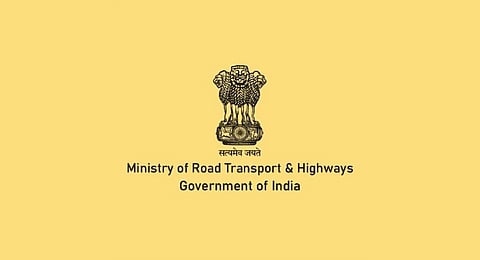

NEW DELHI: The Ministry of Road Transport and Highways (MoRTH) is mulling over raising the ceiling of mandatory usage of precast concrete considerably, from the existing 25 per cent to 75-80 per cent.
The thought behind this is to mitigate pollution, prevent delays, and restrict the cost of road development projects. The ministry has already started working on exploring modalities and is expected to form a group with the Ministry of Housing and Urban Affairs (MoHUA) to reach a decision.
Union Minister for Road Transport and Highways Nitin Gadkari has already had a discussion with Prime Minister Narendra Modi in this regard.
In April 2023, the MoRTH made the usage of factory-manufactured precast concrete elements mandatory in specific projects, including the construction of national highways, expressways, and Centrally sponsored road development plans undertaken at certain locations.
The minimum mandatory usage of precast components was kept at 25 per cent of the total concrete volume, other than the foundation work, in projects within a 100 km radius of the precast factory.
Since then, efforts have been made to encourage construction companies involved in the development of national highways to employ construction components produced in controlled factory environments.
Gadkari has also been pressing for increased usage of precast for a long time and has recently expressed his desire to make it 100 per cent.
“Already we have discussed with the prime minister. We are going to formulate a group of our ministry and urban ministry, and we are now working on it… at least my opinion is 100 per cent, we have to make it precast. But somewhere we will think 75-80 per cent mandatory. It is the need of the hour. It (precast concrete) reduces the cost and the pollution,” he said at an event in Delhi last week.
The MoRTH is also considering making precast boundary walls mandatory for access-controlled highways.
According to the ministry, precast concrete has the benefits of all-weather and fast construction. Ministry officials said that factory-manufactured precast concrete has reliable quality and also enhances performance, durability, and aesthetics due to uniformity in appearance. It also reduces carbon emissions, noise, and air pollution due to restricted construction activities at the site.
The ministry also argued that increased usage of concrete elements made in factories would play an integral role in accelerating the growth of the Micro, Small, and Medium Enterprises (MSME) sector.
Precast concrete elements such as panels, girders, and barriers have been used in the construction of the Delhi-Mumbai Expressway, including its boundary walls. The usage of factory-produced precast beams is prevalent in many countries, such as Belgium, Canada, the United Kingdom, Italy, Spain, the Netherlands, and the United States of America (USA).